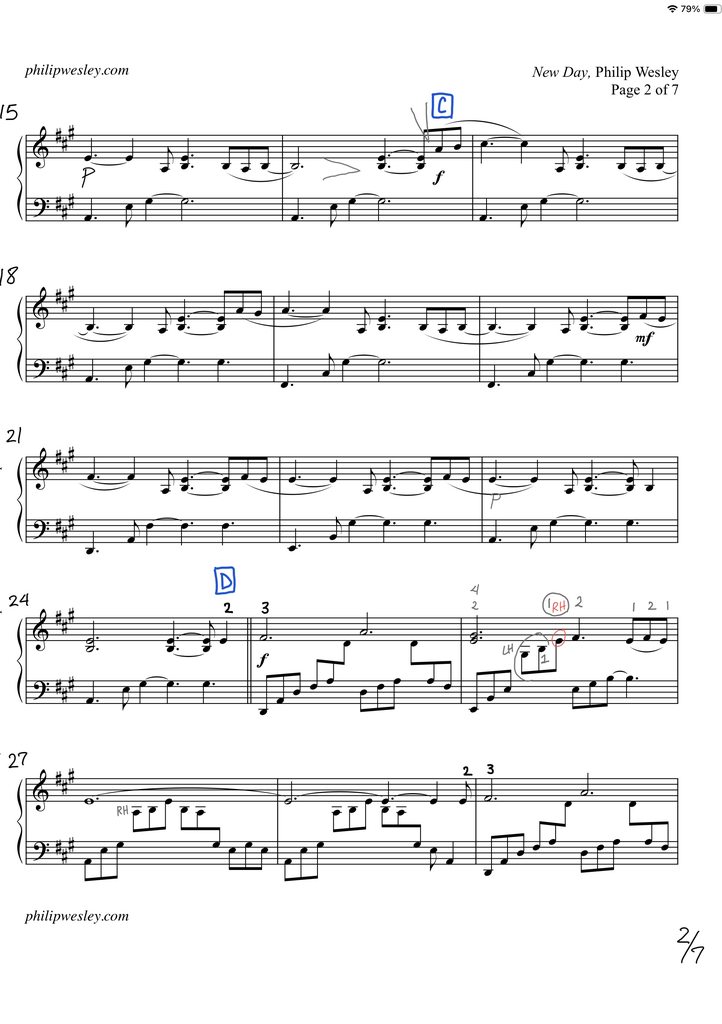On noticing the gap between what I can play, and what I want to play….
Here’s a piece I’m working on polishing right now, New Day by Philip Wesley. This piece is definitely on the easier side of the pieces I play, and it’s come together really quickly, so it’s maybe not representative of my “maximum playing ability” … but anyway, take a look: here’s the original, and one page from the score:

On the other hand, here’s Call of Silence, played by @rach3master . Here’s a page from the score, and them playing it:

It’s been a long time since I found a piece that I really want to play, and looked at the score and decided it’s way too hard for me. Partly that’s because I choose pieces pretty strategically so they’re sort of in the range of my current level. But also I think a lot of the time, I don’t push myself, or rather, I don’t push my technique….
I also think this is a feature of playing contemporary music, there’s not a graded/progressive syllabus the way there is with the traditional classical repertoire. So you can play an almost infinite number of pieces at what I think of as a lower intermediate level, and I think that’s where I’ve been playing for the last several years.
The question is, what’s the best thing for me to do at this point…. Take a piece a piece like Call of Silence, break it up and start working on it… or find a more step-wise piece, harder than what I’m playing right now, but not so much of a jump…
I’ll be talking with my teacher this at our lesson this week, but if anyone has any thoughts, please share them!